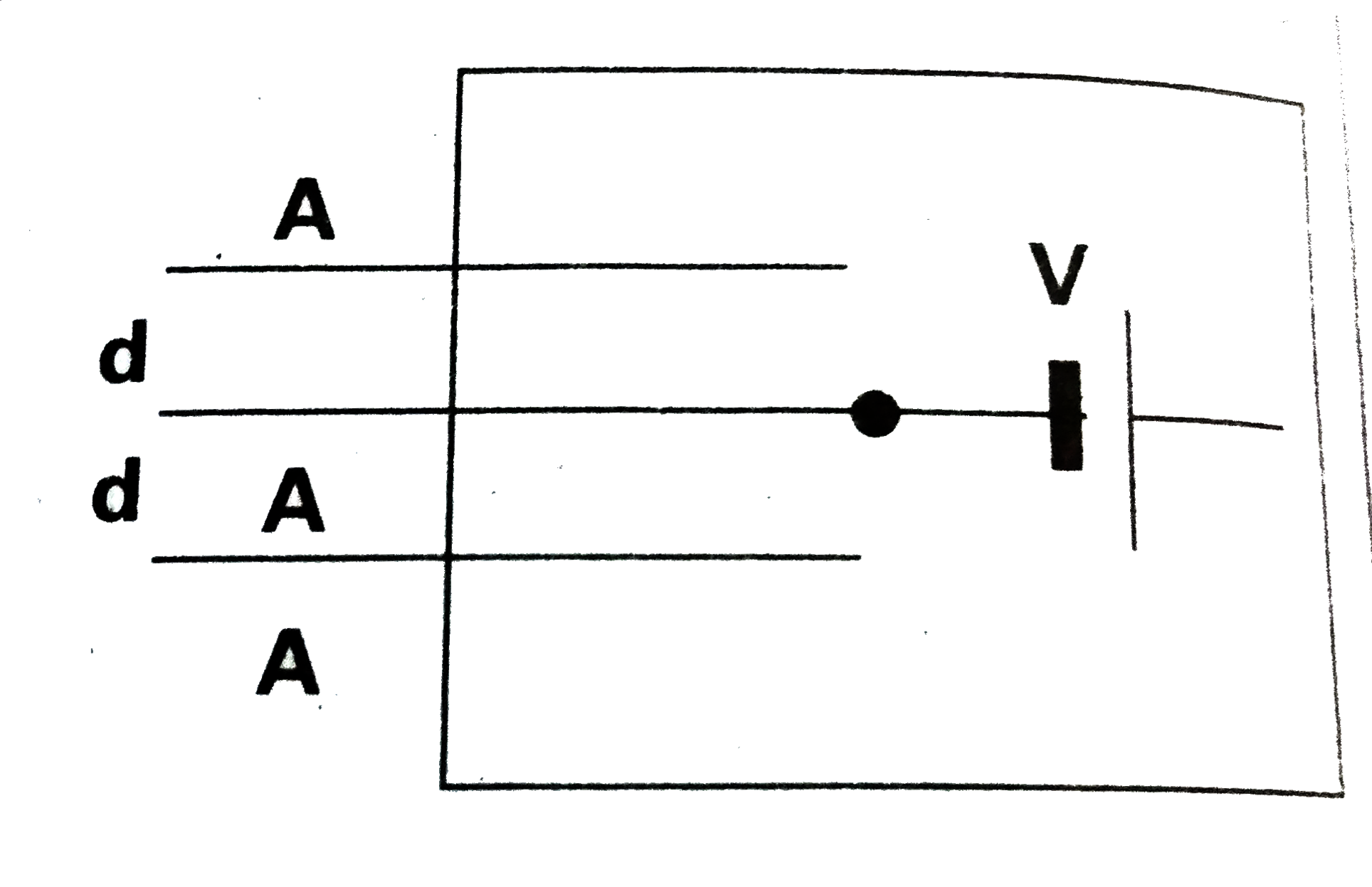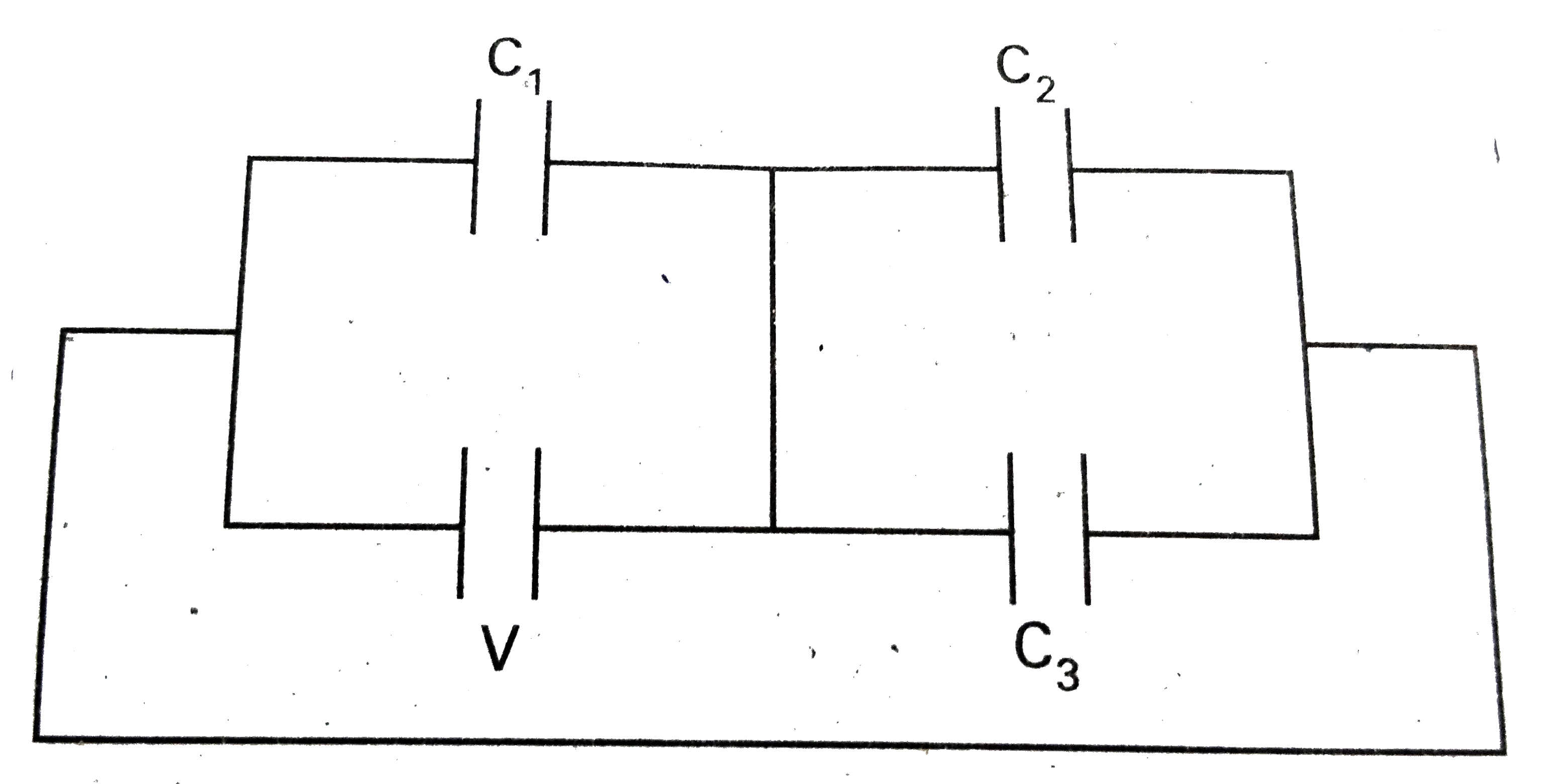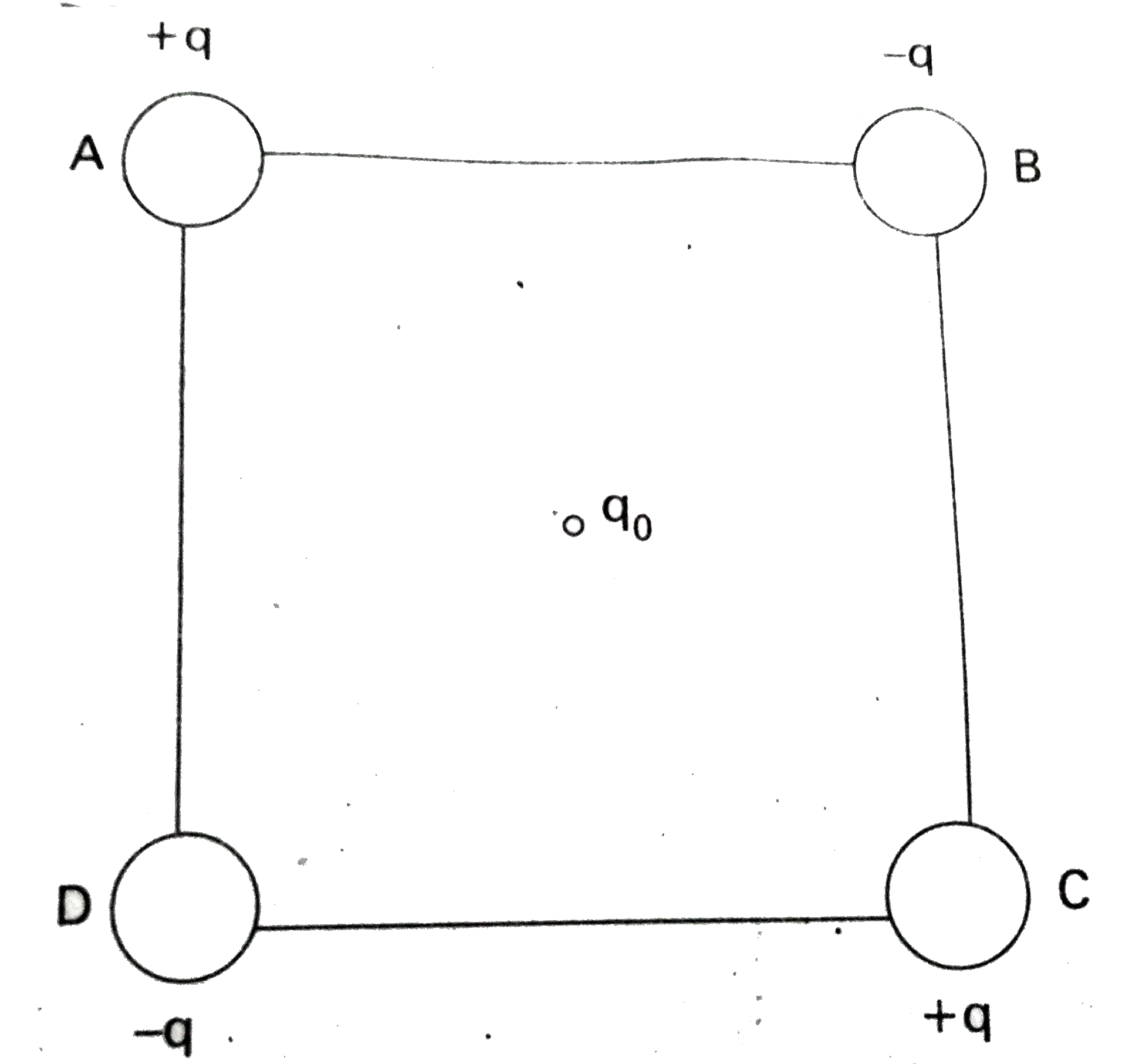Complete Solutions to PROBLEMS of chapter ELECTROSTATIC POTENTIAL AND CAPACITANCE of Class 12 book with complete answers and questions
| Class 12 | PHYSICS |
| Chapter | ELECTROSTATIC POTENTIAL AND CAPACITANCE |
| VIKRAM | PROBLEMS |
| Number Of Questions | 26 |
| Academic Year | 2023-24 |
An elementary particle of mass 'm' and charge `+e` initially at a very large distance is projected with velocity 'v' at a much more massive particle of charge `+Ze` at rest. The closest possible distance of approach of the incident particle is .
View SolutionIn a hydrogen atom the electron and proton are at a distance of `0.5 Å`. The dipole moment of the system is .
View SolutionThere is a uniform electric field in the XOY plane represented by `(40hat(j)+30hat(j))Vm^(-1)`. If the electric potential at the origin is 200 V, the electric potential at the point with coordinates (2m,1m) is
View SolutionAn equilateral triangle has a side length L. A charge `+q` is kept at the centroid of the triangle . P is a point on the perimeter of the triangle. The ratio of the minimum and maximum possible electric potentials for the point P is
View SolutionABC is an equilateral triangle of side 2m. There is a uniform electric field of intensity 100V/m in the plane of the triangle and parallel to BC as shown. If the electric potential at A is 200V, then the electric potentials at B and C.
View SolutionAn electric dipole of moment p is placed in a uniform electric field E, with P parallel to E. it is then rotated by an angle q. The work done is
View SolutionThree identical metal plates each of area 'A' are arranged parallel to each other. 'd' is the distance between the plates as shown. A battery of 'V' volts is connected as shown. The charge stored in the system of plates is

View SolutionFour identical metal plates each of area A are separated mutually by a distance d and are connected as shown. Find the capacity of the system between the terminals A and B.

View SolutionIn the circuit shown the battery of 'V' volts has no internal resistance . All three condensers are equal in capacity. Find the condenser that carries more charge ?
 .
.
View SolutionTwo capacitors A and B of capacities C and 2C are connected in parallel and the combination is connected to a battery of V volts. After the charging is over , the battery is removed. Now a dielectric slab of `K=2` is inserted between the plates of A so as fill the completely. The energy lost by the system during the sharing of charges is
(i) With battery of parallel combination :
View SolutionTwo capacitors A and B of capacities C and 2C are connected in parallel and the combination is connected to a battery of V volts. After the charging is over , the battery is removed. Now a dielectric slab of `K=2` is inserted between the plates of A so as fill the completely. The energy lost by the system during the sharing of charges is
(ii) Without battery of parallel combination :
View SolutionA condenser of certain capacity is charged to a potential V and stores some energy. A second condenser of twice the capacity is to store half the energy of the first , find to what potential one must be charged ?
View SolutionCalculate the potential at a point P due to a charge of `4xx10^(-7)C` located 9 cm away.
View SolutionThere exists a potential at a point P due to a charge of 4 × 10 − 7 C located 9 cm away. Hence obtain the work done in bringing a charge of `2xx10^(-9)C` from infinity to the point P . Does the answer depend on the path which the charge is brought ?
View SolutionTwo charges `3xx10^(-8)C and -2xx10^(-8)C` are located 15 cm apart. At what point on the line joining the two to be charges is the electric potential zero ? Take the potential at infinity to be zero.
View SolutionA slab of material of dielectric constant K has the same area as the plates of a parallel plate capacitor but has a thickness (3/4)d, where is the separa - tion of the plates. How is the capacitance when the slab is inserted between the plates ?
View SolutionFour charges are arranged at the corners of a square ABCD of side d. as shown in fig. Find the work required to put together this arrangement. (b) A charge `q_(0)` is brought to the centre of the square, the four being held fixed at its corners. How much extra work is needed to do this ?

View SolutionDetermine the electrostatic potential energy of a system consisting of two charges `7muC and -2muC` (and with no external field) placed at `(-9 cm, 0,0) and (9cm,0,0)` respectively.
View SolutionHow much work is required to separate the two charges infinitely away from each other ?
View SolutionThere is a uniform electric field in the XOY plane represented by `(40hat(j)+30hat(j))Vm^(-1)`. If the electric potential at the origin is 200 V, the electric potential at the point with coordinates (2m,1m) is
View SolutionAn equilateral triangle has a side length L. A charge `+q` is kept at the centroid of the triangle . P is a point on the perimeter of the triangle. The ratio of the minimum and maximum possible electric potentials for the point P is
View SolutionA condenser of certain capacity is charged to a potential V and stores some energy. A second condenser of twice the capacity is to store half the energy of the first , find to what potential one must be charged ?
View SolutionThree capacitors each of capaitance 9pF are connected in series.
(a) What is the total capacitance of the combination ?
(b) What is the potential difference across each capacitor if the combination is connected to a 120 V supply ?
View SolutionThree capacitors each of capaitance 9 p F are connected in series.
(b) What is the potential difference across each capacitor if the combination is connected to a 120 V supply ?
View SolutionThree capacitors of capacitances 2p F , 3 p F and 4 p F are connected in parallel.
(a) What is the total capacitance of the combination ?
View SolutionThree capacitors of capacitances 2p F , 3 p F and 4 p F are connected in parallel.
(b) Determine the charge on each capacitor if the combination is connected to a 100 V supply.
View Solution
PROBLEMS questions and complete solutions for chapter ELECTROSTATIC POTENTIAL AND CAPACITANCE of VIKRAM PUBLICATION ( ANDHRA PUBLICATION) of Class 12